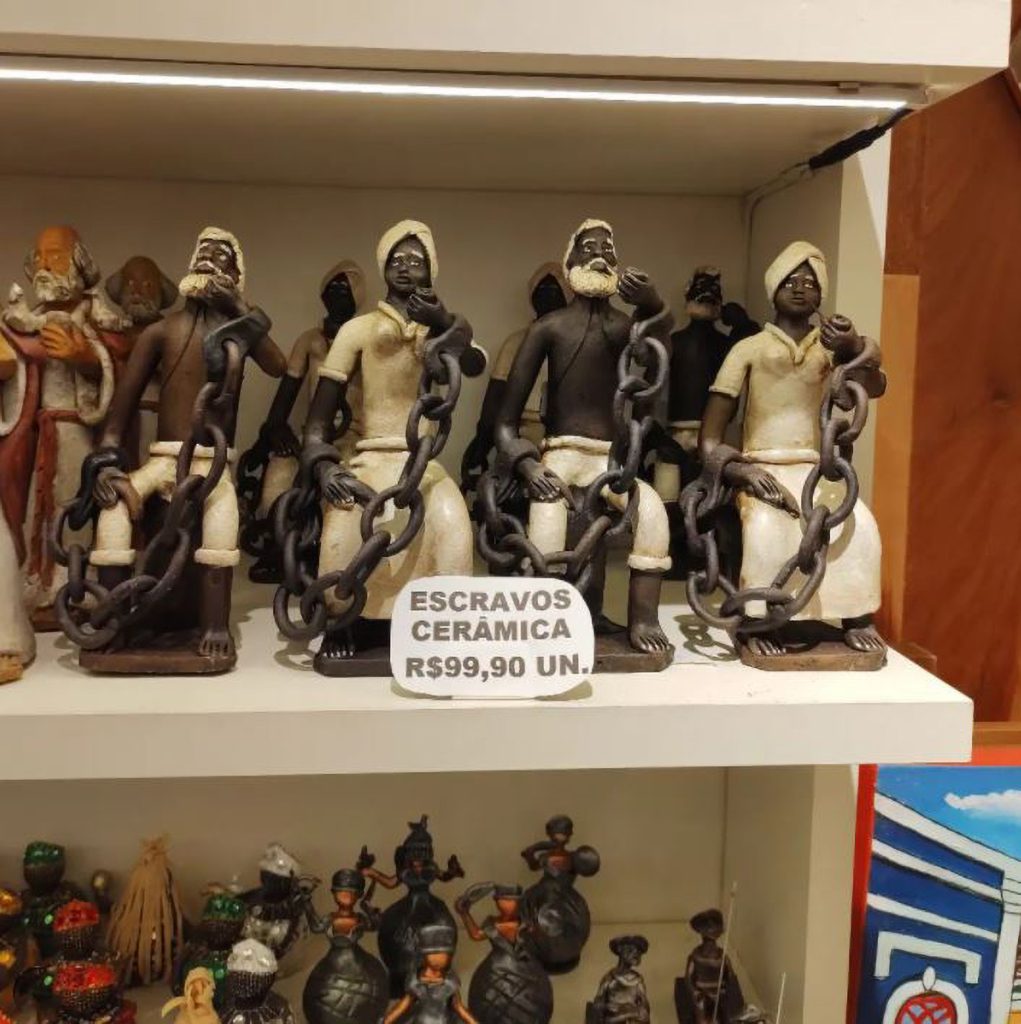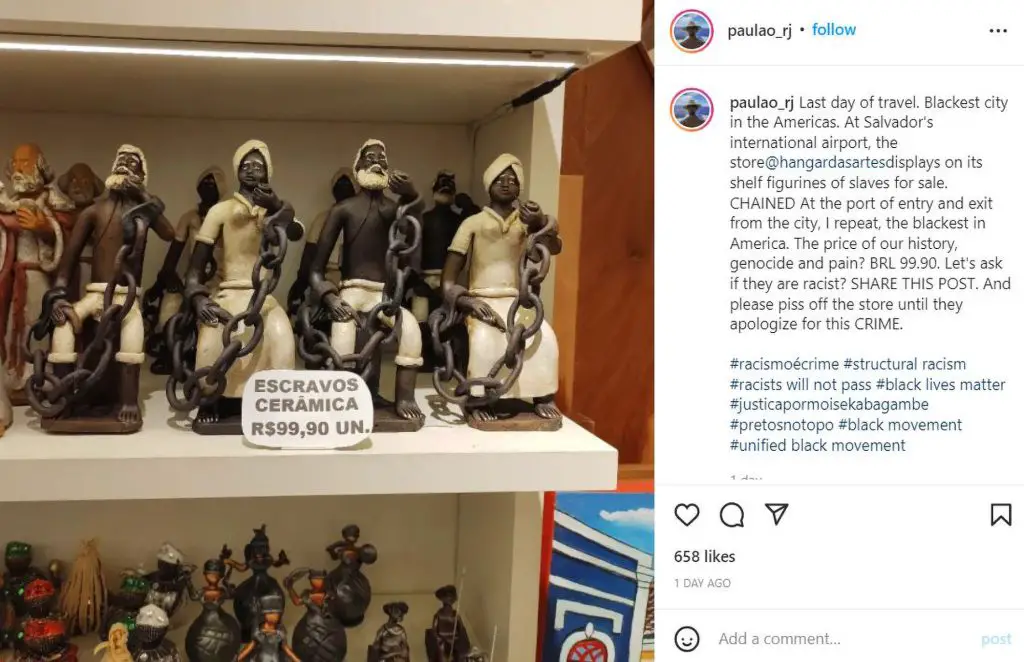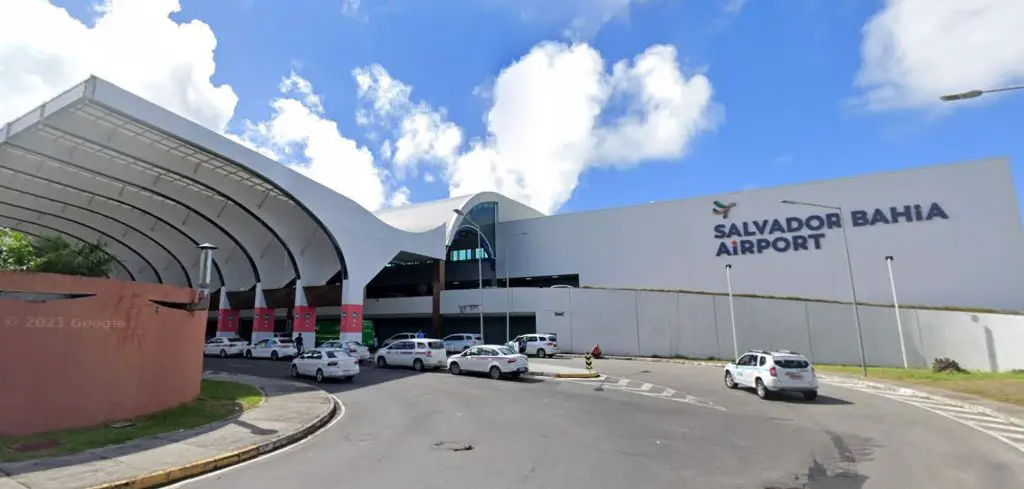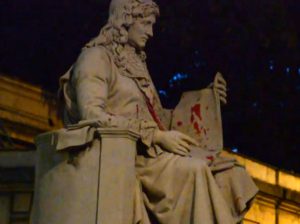This image reportedly showing statues of black slaves in chains on sale at an international airport in Brazil has caused outrage after it was shared online.
The image was reportedly taken at Salvador International Airport, which serves the city of Salvador in the north-eastern Brazilian region of Bahia on Sunday afternoon (6th February) before it was shared online yesterday (Tuesday, 7th February).
It has since caused outrage, with numerous local media outlets reporting on it. The image itself, shared on Instagram, had notched up nearly 1,000 ‘likes’ at the time of writing, some 24 hours after it was posted.

Paulo Cruz, a historian from Rio de Janeiro, visited the city and was waiting at the airport to fly home when he saw the statues of slaves for sale.
Cruz said: “It was a tremendous shock. First of all, because I think it’s the type of thing that shouldn’t be sold anywhere, much less in a city like Salvador, especially after the experience I had, seeing the experience of black people.”
Salvador has a large black and multiracial population thanks to its former status as the as the largest port for imported slaves in Brazil.
The pieces, which appear to make reference to the slavery system that operated in Brazil until 1888, show black men and women with chains around their wrists.
The “works of art”, as they are reportedly advertised, sell for BRL 99.90 (GBP 14), and Cruz said that it was in extremely poor taste that the statues were labelled “slaves” with the price under them.
The outrage gained momentum after Cruz’s Instagram post was shared by activist Antonio Isuperio, who has over 83,000 followers.

Isuperio said: “Can you imagine there being a doll of Jewish children in ‘ovens’ being sold as an accessory? Now, that doesn’t happen because the repudiation of Nazi violence is already in the public domain, while we n*gros are still in the process of conquering our humanity.”
After the outrage began to spread on social media, the Hangar das Artes shop at the airport selling the questionable wares published a statement online saying that the company behind the statues “employs countless people and has been active in the handicraft and artworks market for over 20 years, marketing and promoting the production of works by several regional artists, always encouraging the production of that small artisan whose livelihood depends exclusively on their art.
“All the works we exhibit are geared towards the exaltation of Bahian and Brazilian culture and history. Our store is located at Salvador Airport and has always praised cultural diversity, with an emphasis on African culture, given that we are proud to say that we are probably the blackest city outside of Africa. Always with great respect and admiration.
“The images that are circulating of some of our sculptures are the image of the ‘Preto Velho’ – spirits that present themselves with the appearance of old Africans who lived in the slave quarters, mostly as slaves, entities that work with charity and take care of all those who seek them to improve their health, open paths and gain protection on a daily basis.
“Therefore, some of the pieces have chains, in an (ERRONEOUS) attempt to portray the history of this entity in a literal way. We made a mistake in the way the pieces were exposed and in describing them only as slaves, erasing, in a way, the history they carry.
“We sincerely apologise to everyone who felt hurt and slighted by the way we handled things. Our intention was NEVER to belittle, hurt or dismiss the image of such an important entity and the power of its history.
“Our chains have been broken! And by no means do we want to bring back memories of that dark and shameful past.

“Therefore, we have removed all the pieces from circulation in order to portray ourselves humbly in the face of what happened. We know that what has been done cannot be erased, but we recognise our failure and we will not repeat it, not only because of the repercussion that there was, but because it does not match our truth.
“Our sincere apologies for what happened.”
Vinci Airports, meanwhile, the company that manages the terminal, reportedly said that it had recommended that the products be removed after it found out about the sale of items “that refer to the dishonourable activity of slavery in Brazil”.
Vinci Airports also stated that while it did not decide what products were sold by each shop, it felt that it was important to position itself regarding this matter. The company also stated that it works to build an antiracist community and it reaffirmed its commitment to diversity.



